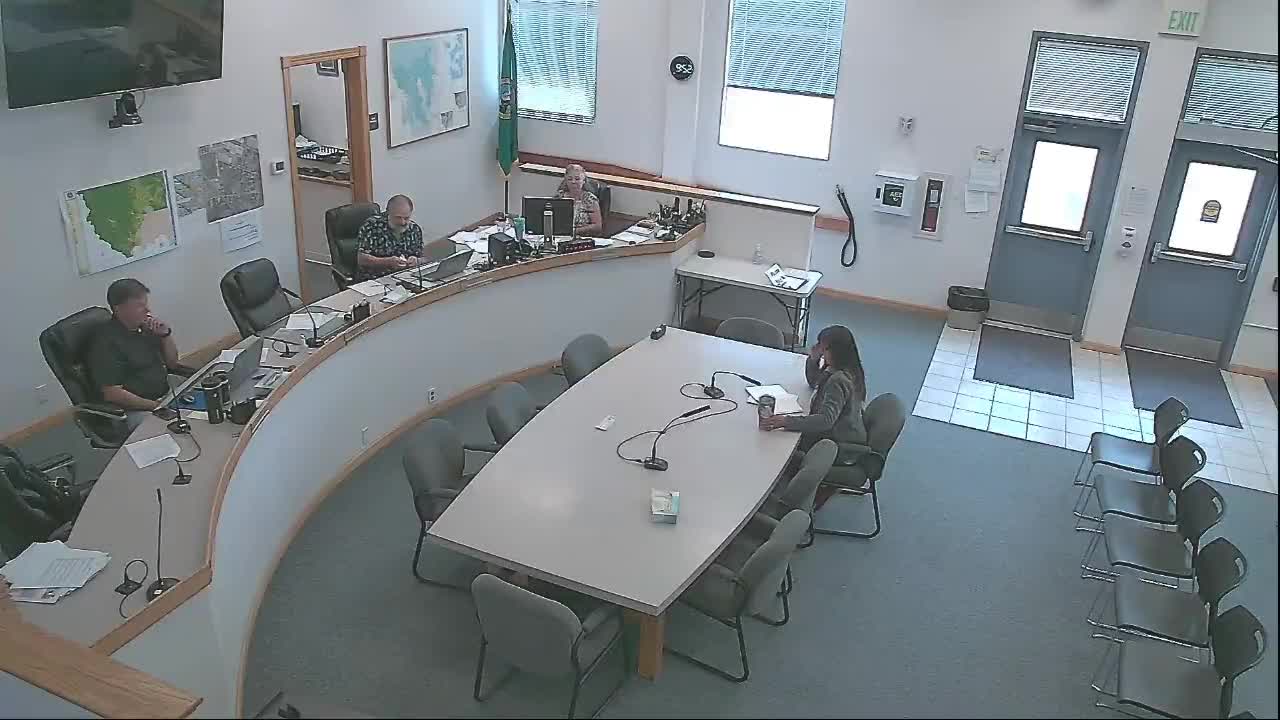Communication Breakdown Fuels Wildfire Response Chaos
July 30, 2024 | Okanogan County, Washington
This article was created by AI summarizing key points discussed. AI makes mistakes, so for full details and context, please refer to the video of the full meeting. Please report any errors so we can fix them. Report an error »

During a recent government meeting, officials discussed the urgent need to advance the zone code amendments and improve communication during wildfire emergencies. The meeting highlighted a backlog in the zone code process, with a proposal to allocate at least an hour and a half to address outstanding code amendments, particularly those related to permit tracking software and adjustments in the nightly rental chapter.
A significant portion of the discussion focused on the challenges faced during recent wildfire incidents, particularly regarding communication breakdowns between tribal and county emergency management teams. Officials expressed concerns that misinformation from the Emergency Operations Center (EOC) exacerbated public anxiety during evacuations. There were calls for better coordination and clearer communication channels to ensure accurate information reaches residents promptly.
The conversation revealed frustrations over jurisdictional disputes, particularly when the Department of Natural Resources (DNR) intervenes in tribal land emergencies. Officials emphasized the need for a unified approach to emergency management that prioritizes public safety over bureaucratic struggles. They noted that the lack of a single point of contact for emergency communications has led to confusion and inefficiencies.
Participants agreed that fostering a collaborative relationship between tribal and county governments is essential for effective emergency response. They proposed establishing a dedicated emergency management liaison to streamline communication and ensure that all parties are informed and coordinated during crises.
Overall, the meeting underscored the importance of proactive planning and clear communication in managing emergencies, particularly in areas where jurisdictional complexities exist. The officials expressed a commitment to addressing these issues to better serve the community in future emergencies.
A significant portion of the discussion focused on the challenges faced during recent wildfire incidents, particularly regarding communication breakdowns between tribal and county emergency management teams. Officials expressed concerns that misinformation from the Emergency Operations Center (EOC) exacerbated public anxiety during evacuations. There were calls for better coordination and clearer communication channels to ensure accurate information reaches residents promptly.
The conversation revealed frustrations over jurisdictional disputes, particularly when the Department of Natural Resources (DNR) intervenes in tribal land emergencies. Officials emphasized the need for a unified approach to emergency management that prioritizes public safety over bureaucratic struggles. They noted that the lack of a single point of contact for emergency communications has led to confusion and inefficiencies.
Participants agreed that fostering a collaborative relationship between tribal and county governments is essential for effective emergency response. They proposed establishing a dedicated emergency management liaison to streamline communication and ensure that all parties are informed and coordinated during crises.
Overall, the meeting underscored the importance of proactive planning and clear communication in managing emergencies, particularly in areas where jurisdictional complexities exist. The officials expressed a commitment to addressing these issues to better serve the community in future emergencies.
Don't Miss a Word: See the Full Meeting!
Go beyond summaries. Unlock every video, transcript, and key insight with a Founder Membership.
✓
Get instant access to full meeting videos
✓
Search and clip any phrase from complete transcripts
✓
Receive AI-powered summaries & custom alerts
✓
Enjoy lifetime, unrestricted access to government data
30-day money-back guarantee

